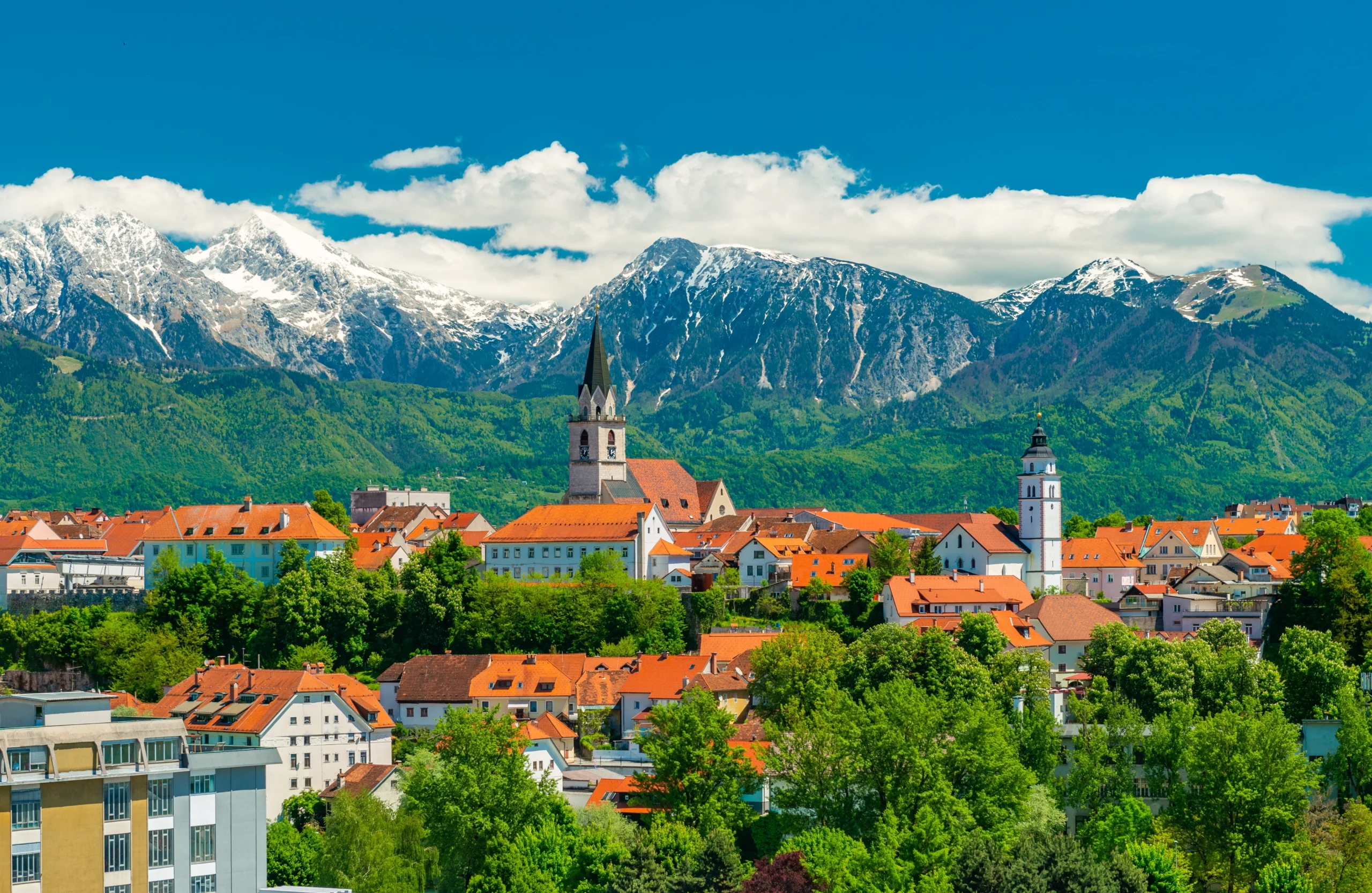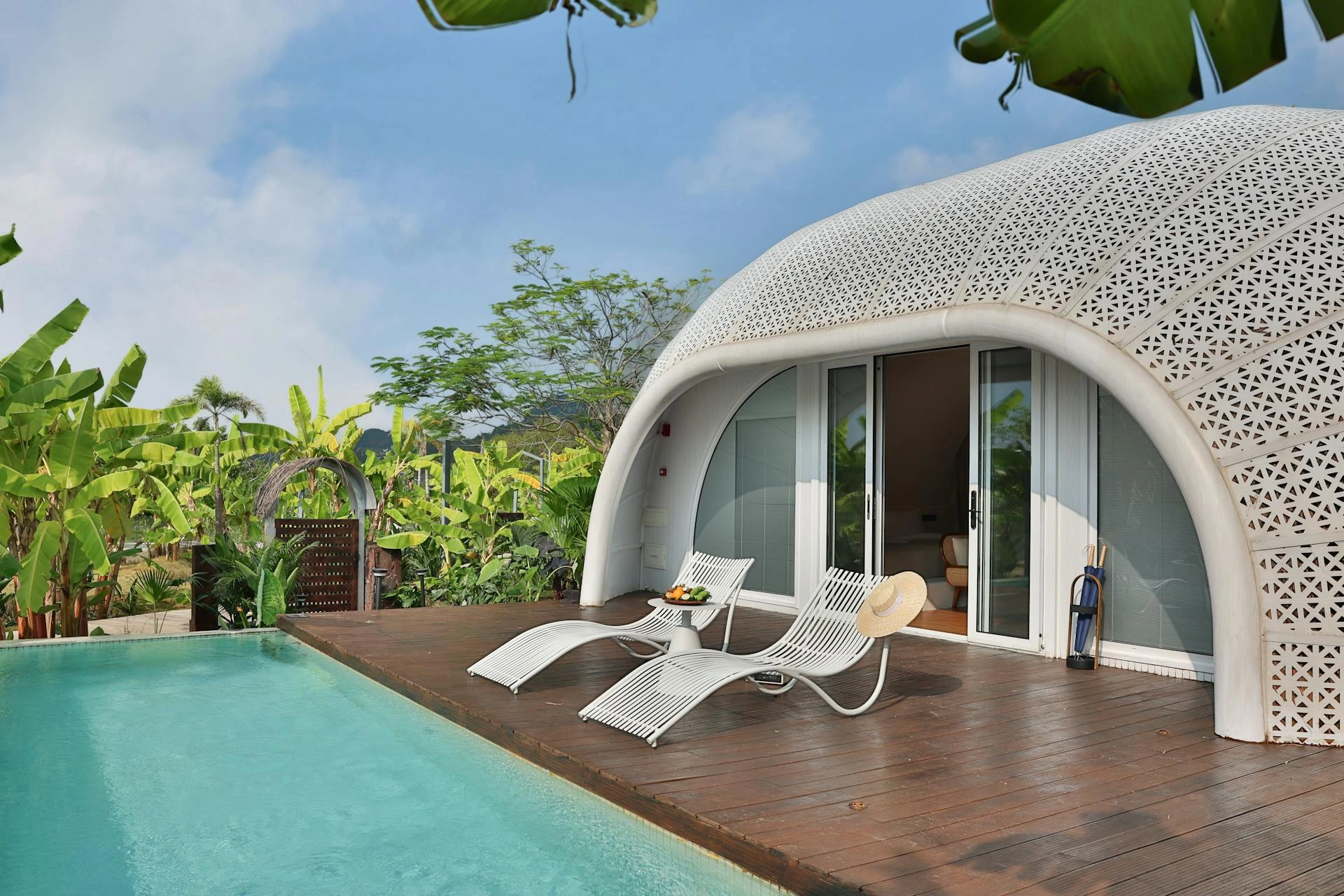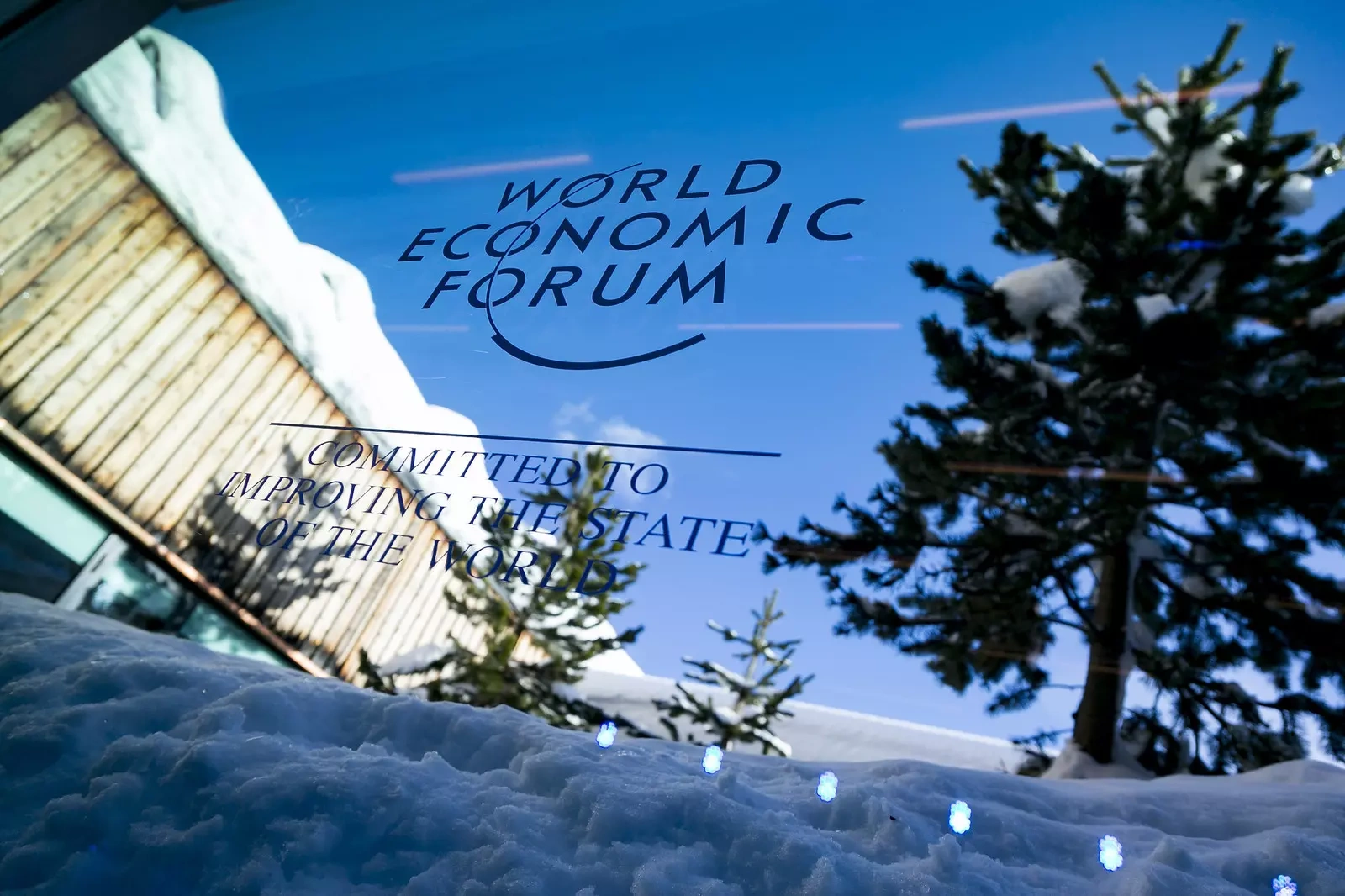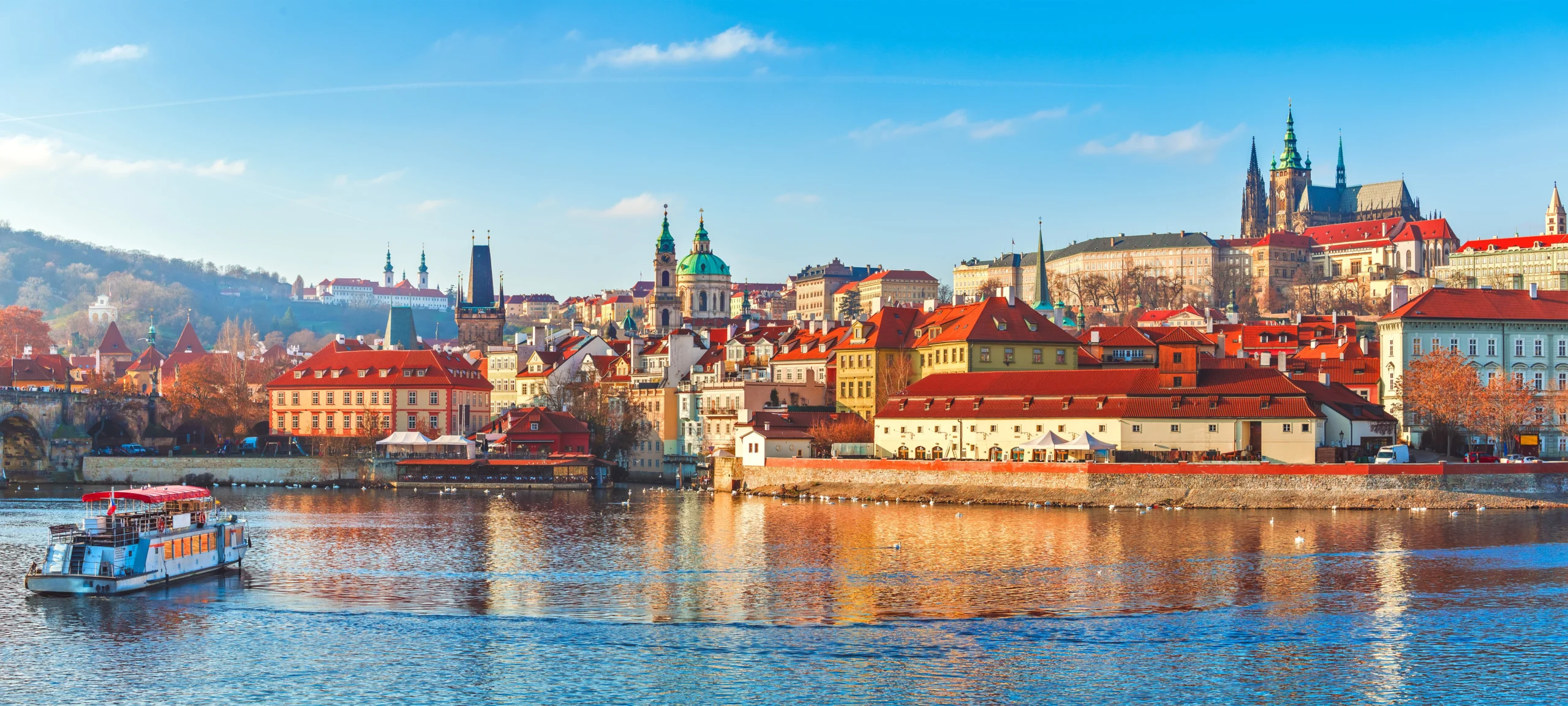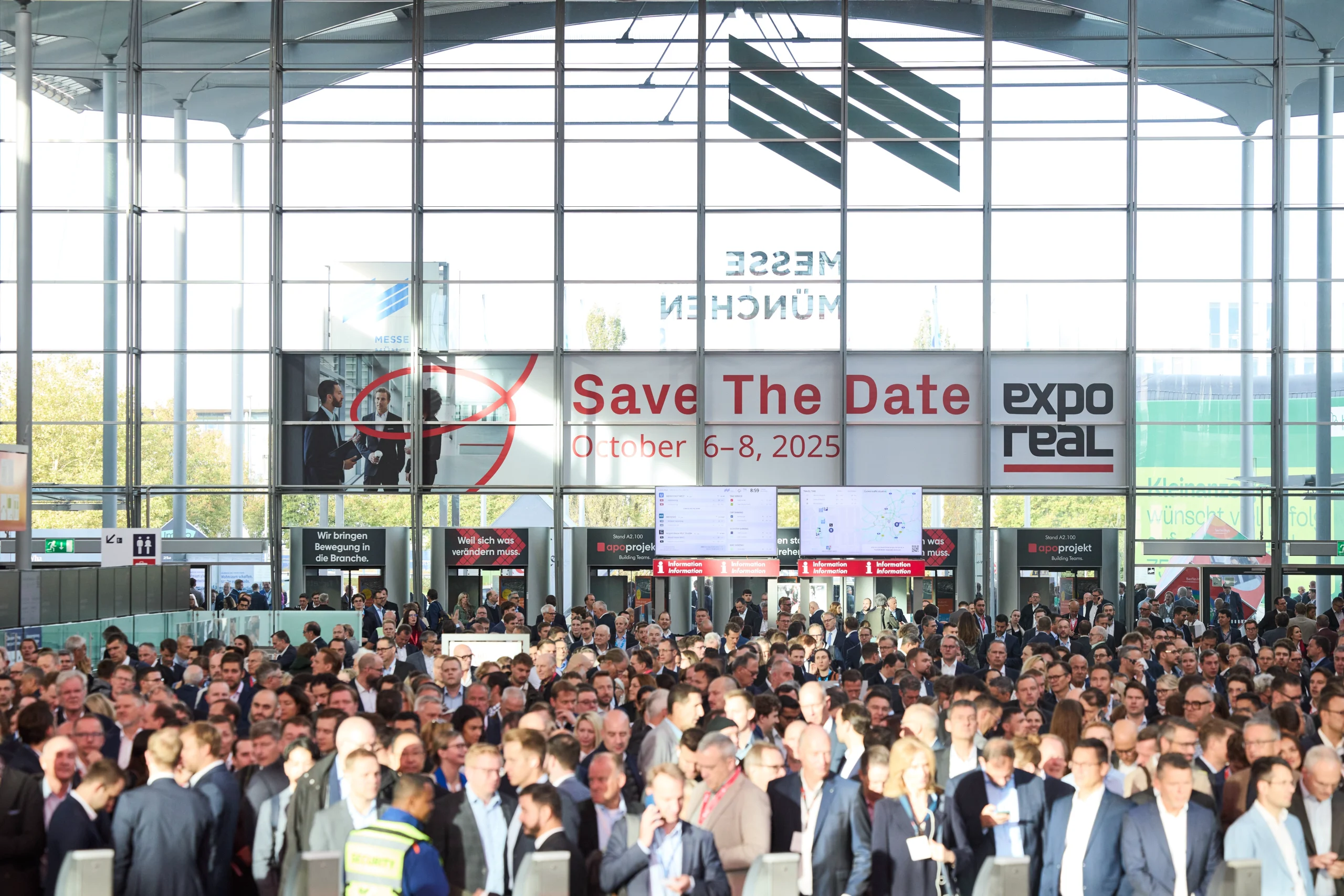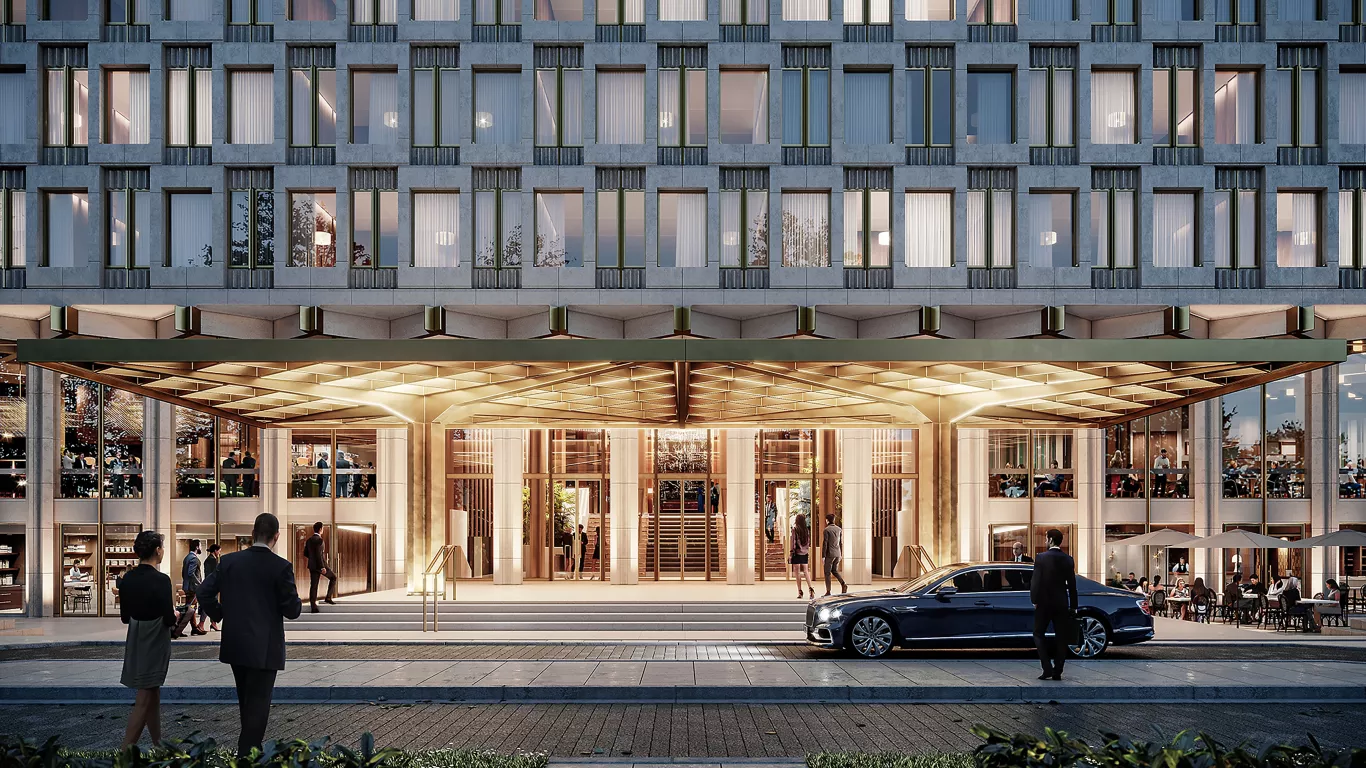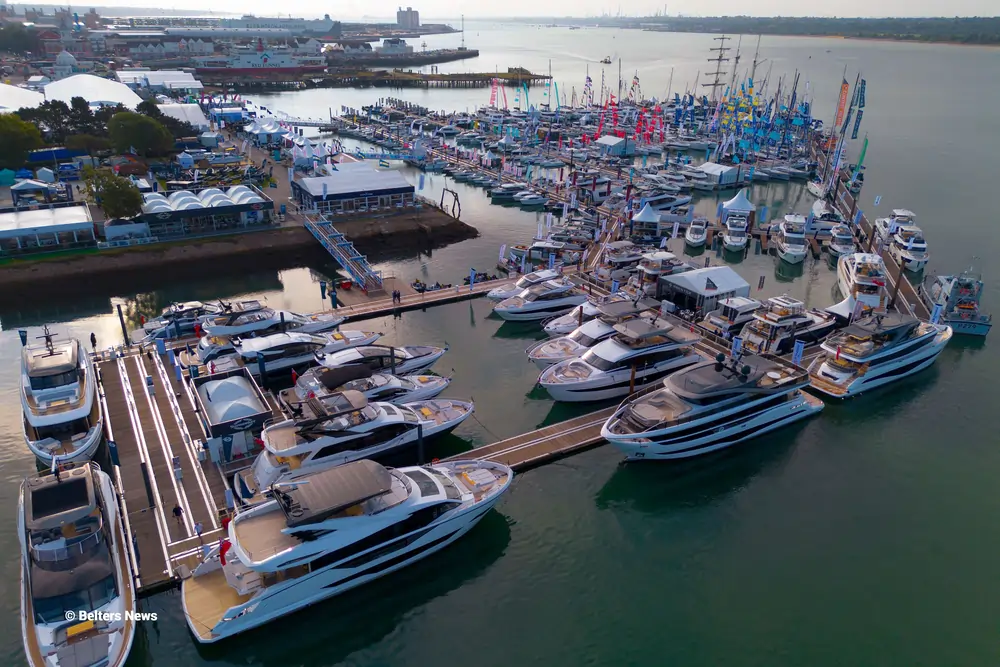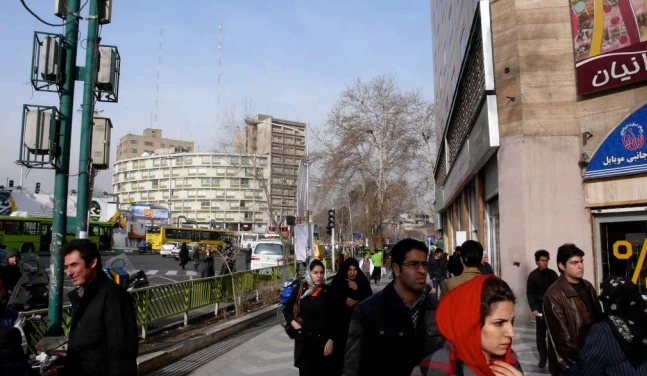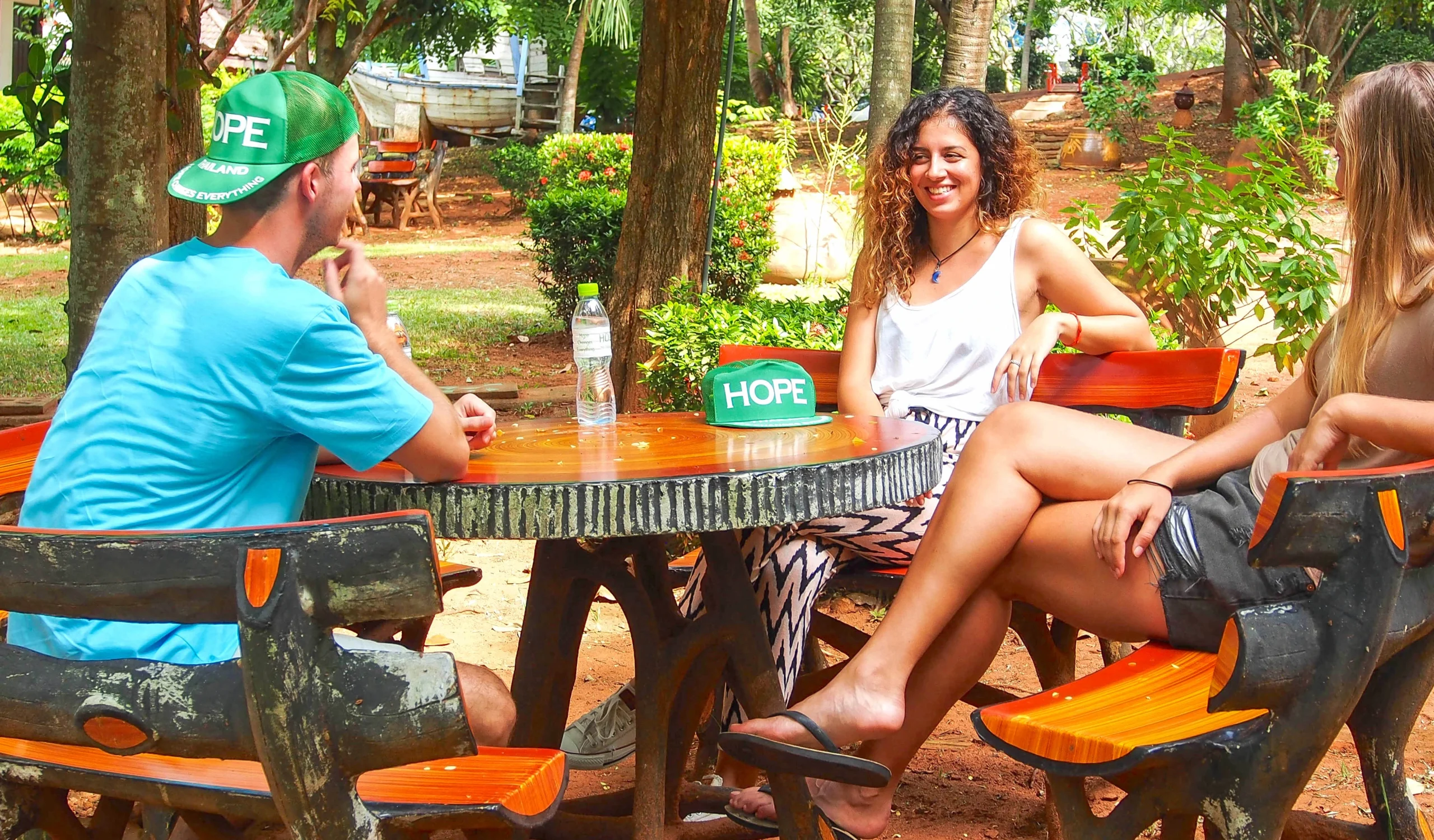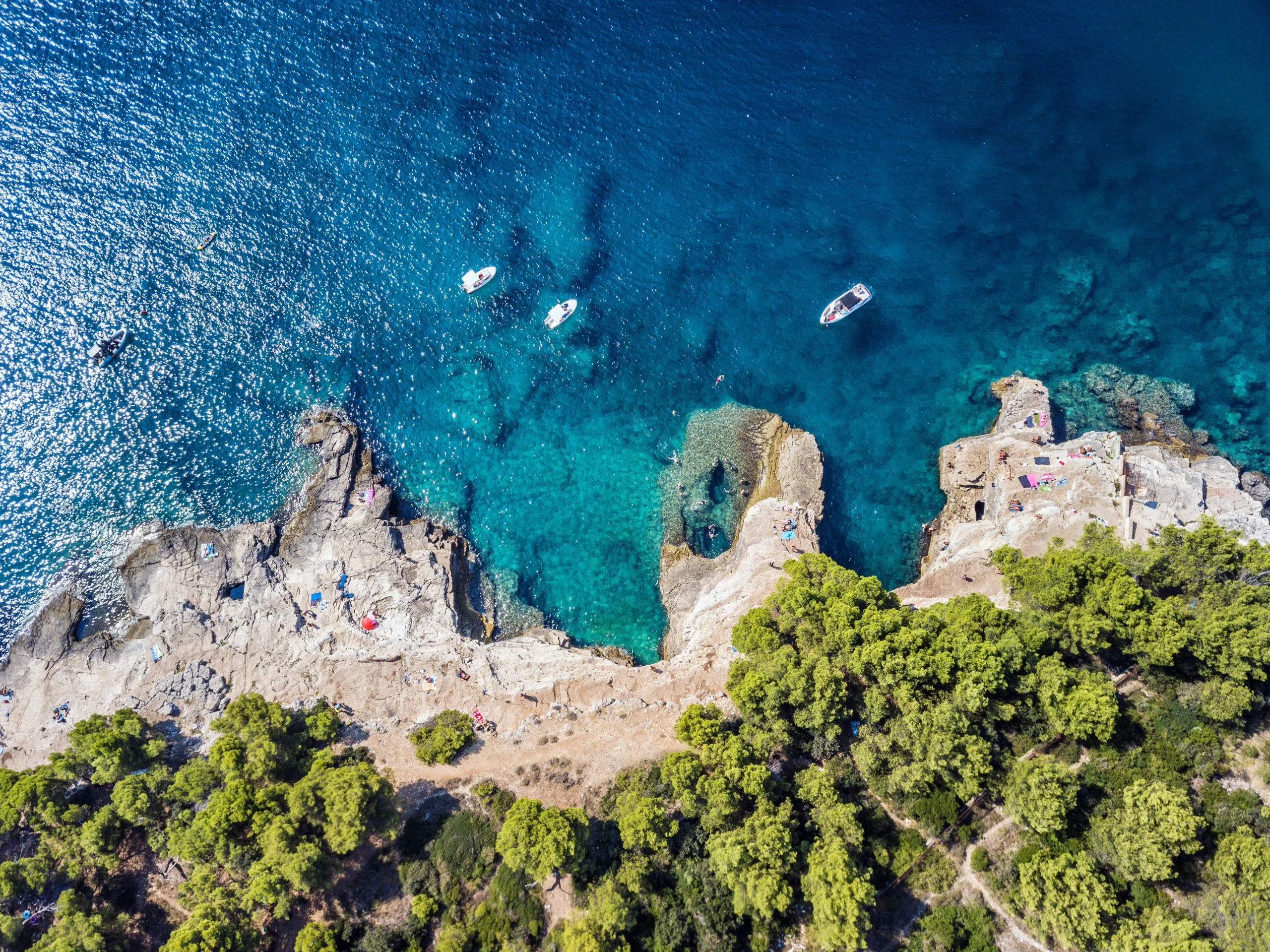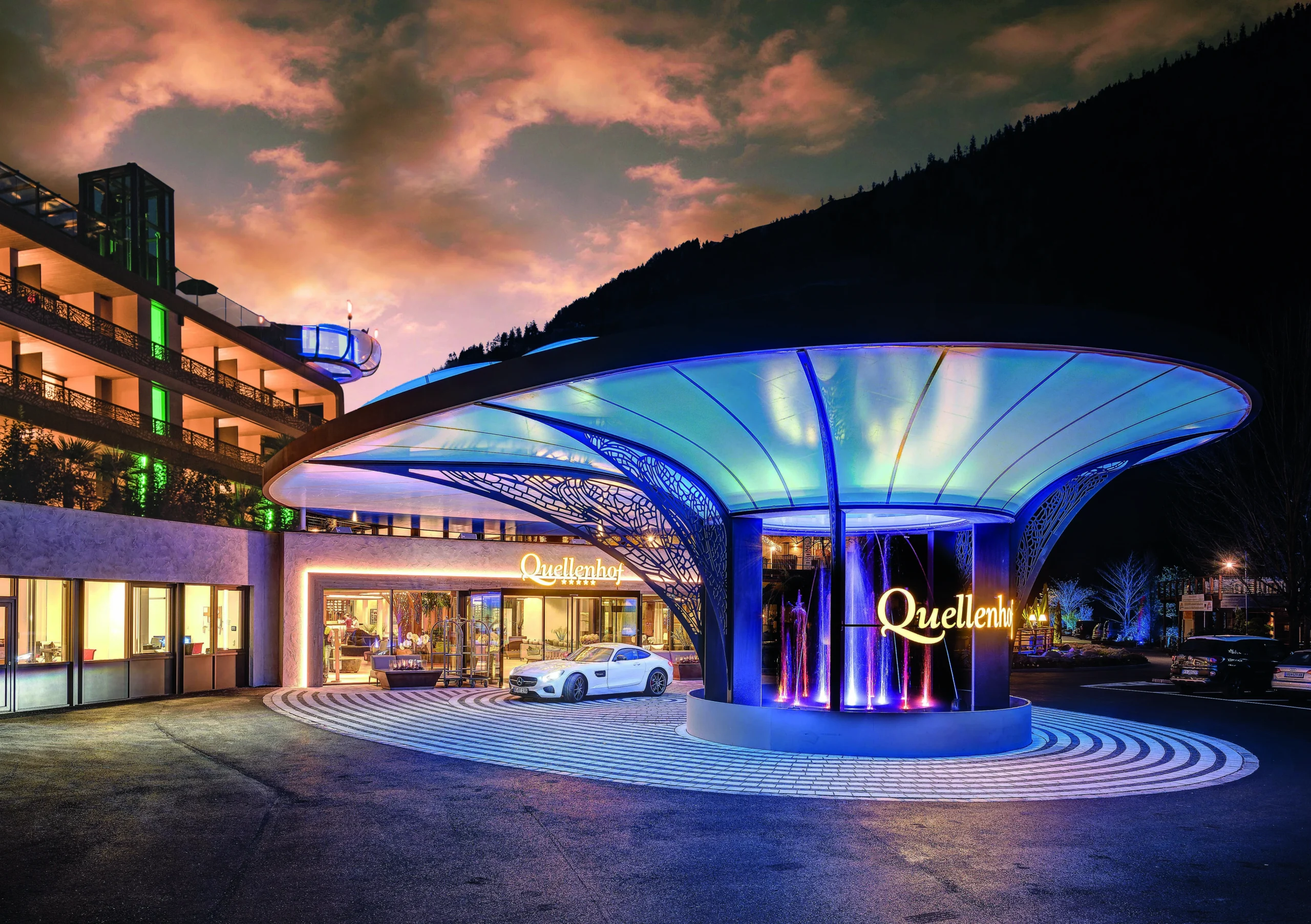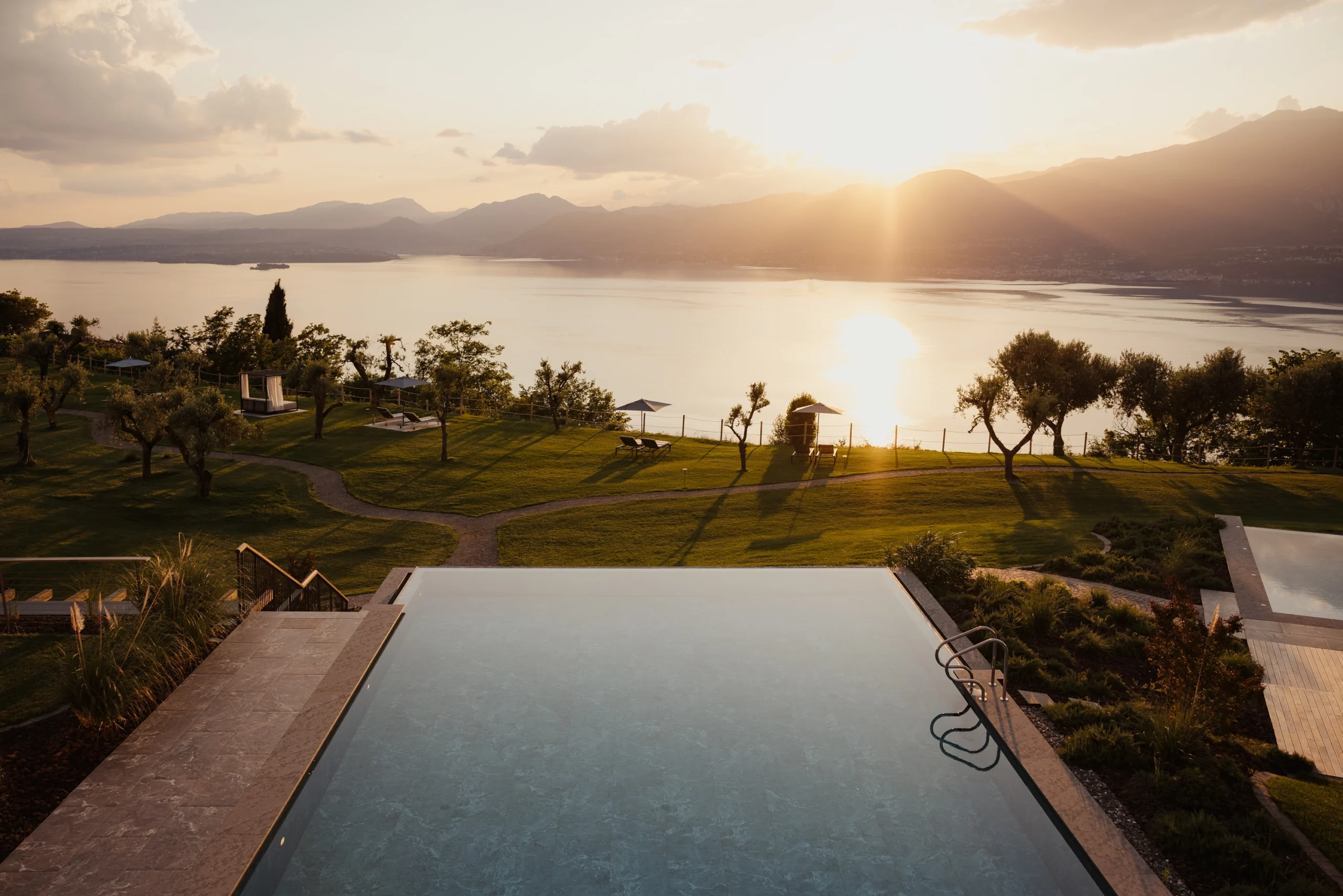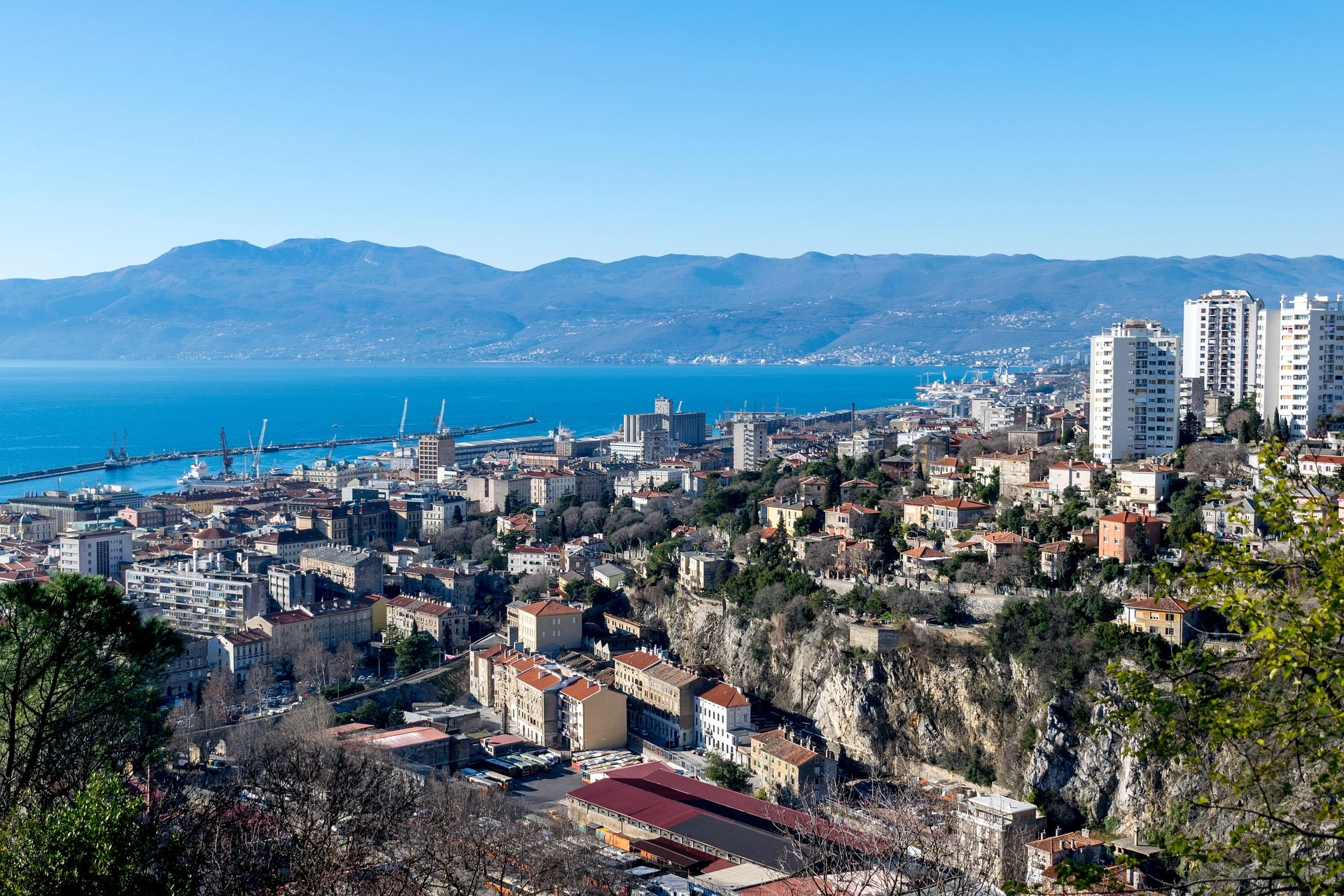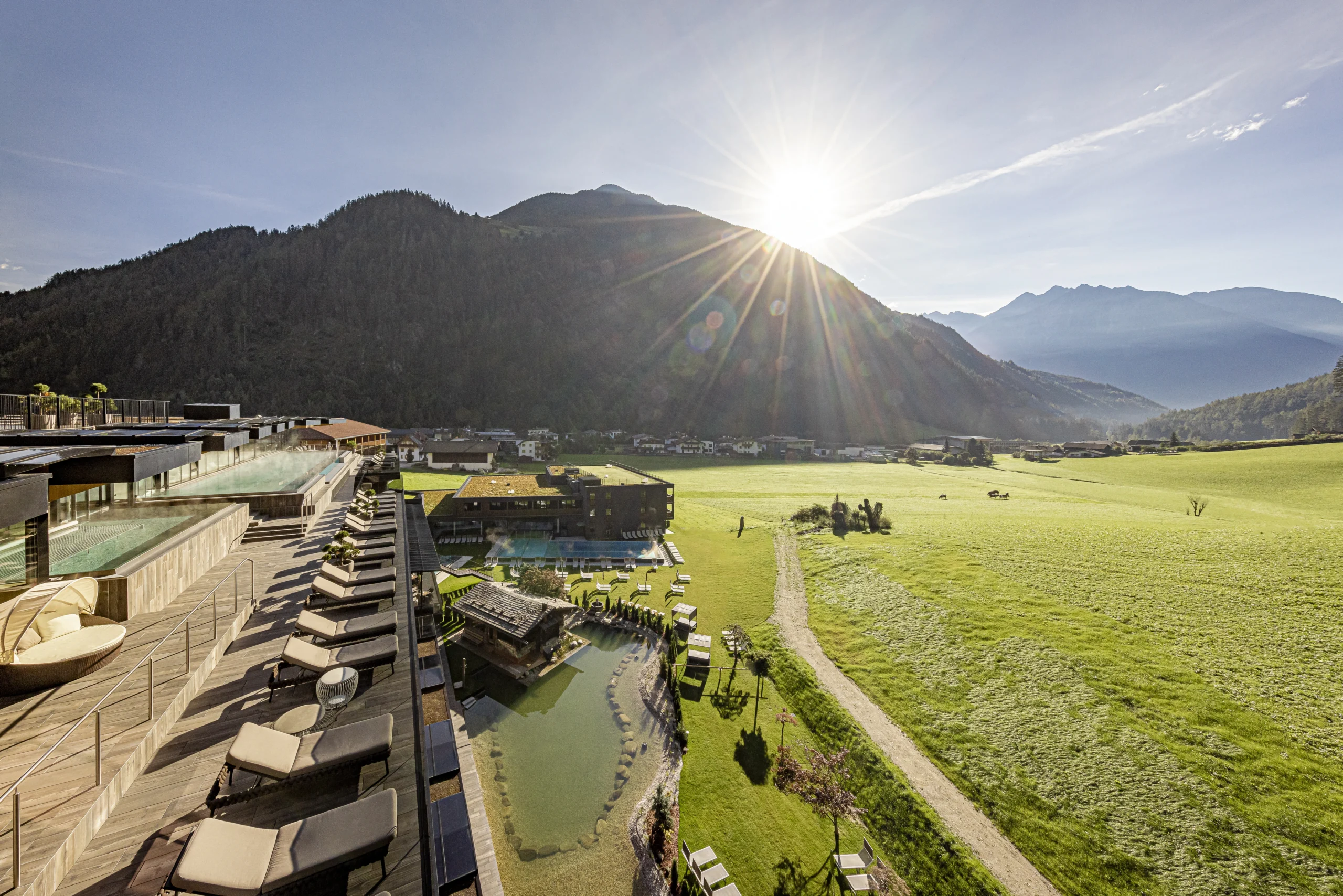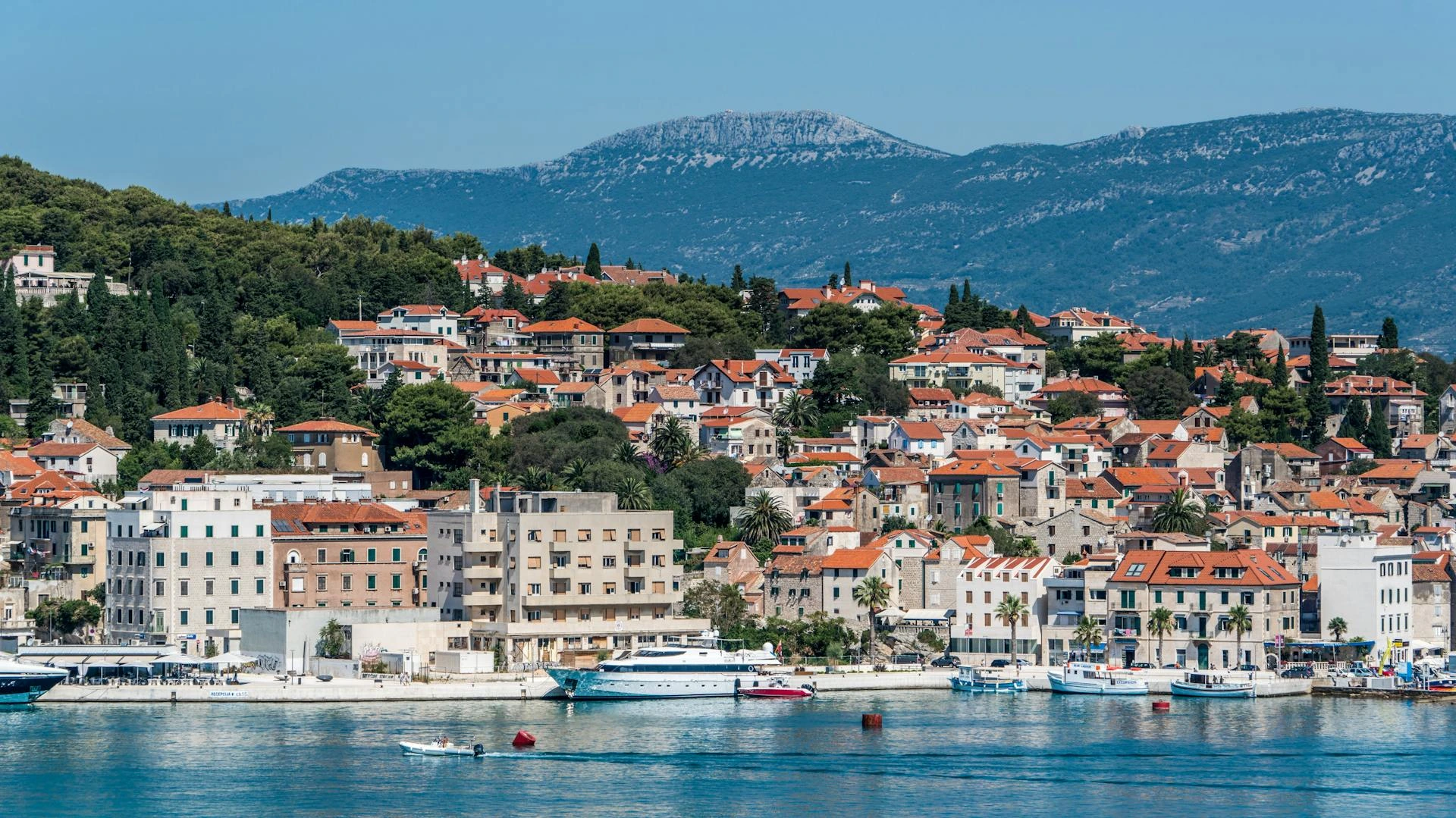Five guilt-free hotels where going green won’t cost the earth

John E. Kaye
- Published
- Travel and Lifestyle

Earth Day may roll around just once a year — it’s marked globally on April 22 — but for a growing number of hotels, sustainability is becoming part of the everyday checklist. From water bottles to bed linen, the industry is under pressure to clean up its act.
This week, travel platform Trip.com named five standout properties it says are “making environmental stewardship their daily mission.” The list includes beach resorts, jungle towers, and solar-powered mountain hideaways, each chosen not for gimmicks but for measurable efforts to reduce waste, save energy, and protect ecosystems.
While some chains are still clinging to carbon pledges for 2050, these hotels are already making changes — ditching single-use plastics, rethinking laundry, installing rooftop panels, or building smarter from the ground up. And they’re doing it, Trip.com says, without asking guests to give up comfort, service or convenience.
“Fun and sustainability can go hand in hand,” the company said in a statement, adding that the five selected hotels “offer unforgettable experiences while trying to protect the destinations they call home.”
The campaign comes amid growing demand for eco-friendly travel options. Trip.com has reported a sharp uptick in searches for more sustainable accommodation — a trend it links to younger travellers and families who increasingly expect hotels to justify their footprint. In response, the company launched a “Certified Sustainable” label in 2024 in partnership with the Global Sustainable Tourism Council (GSTC), which highlights verified environmental practices around governance, economic benefit, culture and conservation.
Trip.com has also introduced lower-emission flight options through the Travel Impact Model (TIM) — recommended by Travalyst — and partnered with CHOOOSE to offer carbon offsetting for air travel. For users wanting help at the booking stage, its AI assistant Trip.Genie can recommend greener options and show the comparative impact of different choices.
The five hotels also reflect what Trip.com calls a “forward-looking model,” and part of that is a shift away from overcrowded tourist hotspots. Its Country Retreats programme, which includes the Jinzhai hotel in China, is designed to “help distribute visitor traffic to rural areas,” supporting local jobs, traditions, and tourism infrastructure.
So which properties made the cut? Here’s where to check in if you want comfort with a conscience…
Centara Reserve Samui, Thailand
Set in lush gardens beside Chaweng Beach, this luxury Thai resort runs on eco logic as much as island charm. Food waste is converted into biogas for the kitchen, water is filtered and bottled in-house, and plastic is kept to a minimum. Guests are invited to reuse towels and sheets via the My Green Day programme, while energy-saving architecture keeps things cool. It’s part of Centara’s wider Earth Care scheme, and it actually works.
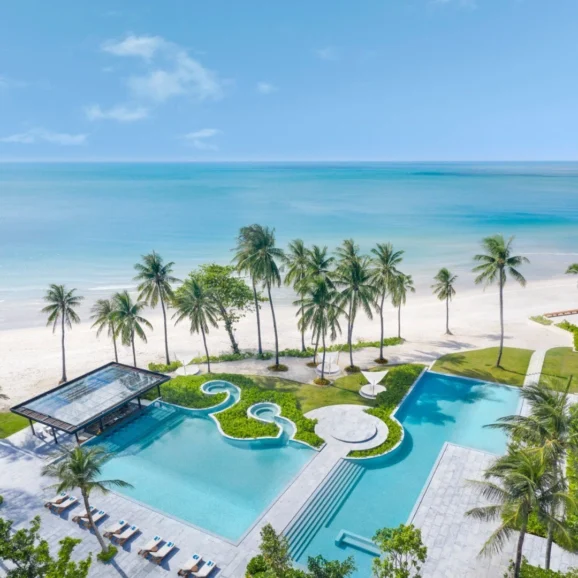
Oasia Hotel Downtown, Singapore
This 27-storey tower looks like it was designed by nature — and in a way, it was. Wrapped in a living skin of tropical plants and flowering vines, the building cools itself naturally, cutting the need for air-con. Birds, bees and butterflies make their home on the façade, while inside, rooftop pools and open-air corridors let you breathe easy. The structure was built by eco-design experts WOHA, and proves you can build up without blocking nature out.
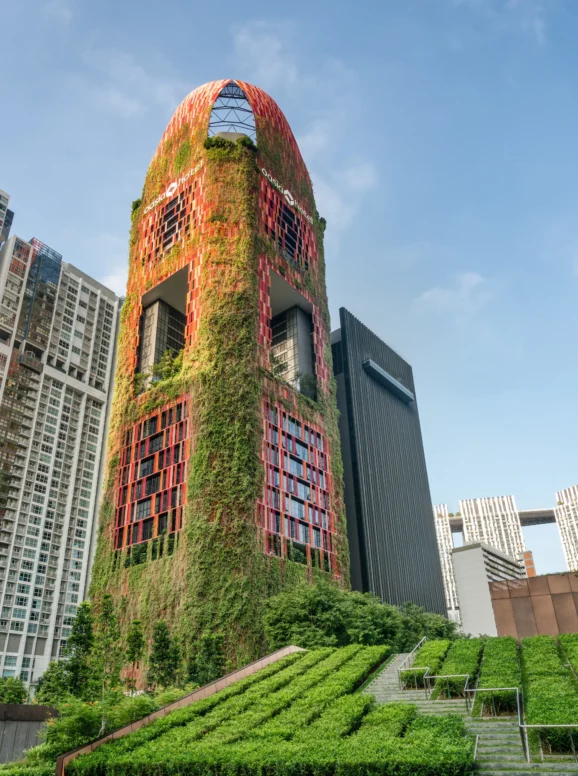
Trip.com Country Retreat, Jinzhai, China
Set in the scenic Dabie Mountains, this solar-powered hideaway mixes rustic charm with modern sustainability. It has EV chargers, rooftop panels, and even educational displays to help guests monitor energy use in real time. Activities include traditional farming, local craft workshops, and nature trails near the Tianzhai Reservoir. It’s part of Trip.com’s Country Retreats initiative — designed to support rural tourism and reduce pressure on overcrowded destinations.
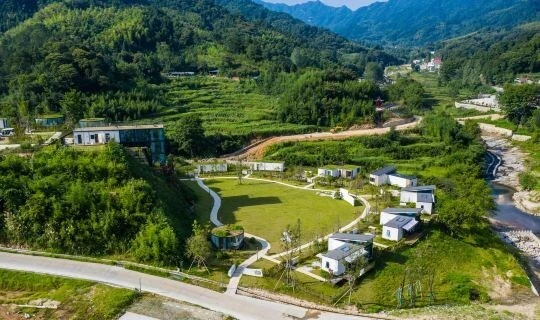
Ascott Marunouchi Tokyo, Japan
This sleek stay near the Imperial Palace is proof that even big cities can go green. Rooms come with kitchens and filtered tap water, slashing single-use plastics. Designed for longer visits, the serviced apartments promote walking, reusability and low-waste living without compromising on comfort. Guests live like locals — with a smaller footprint to match.
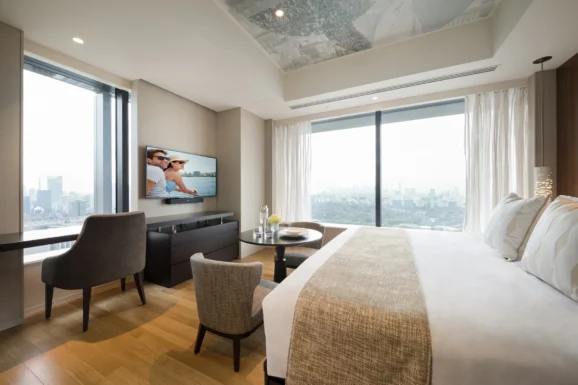
NJV Athens Plaza, Greece
A stone’s throw from the Acropolis, this city-centre hotel is making sustainability standard. Linens are washed cold, rooms power down when empty, and biodegradable loo roll comes as standard. Guests are encouraged to skip daily housekeeping to save water and energy. With a location this iconic, the hotel says it has a duty to lead by example — and it’s doing just that.
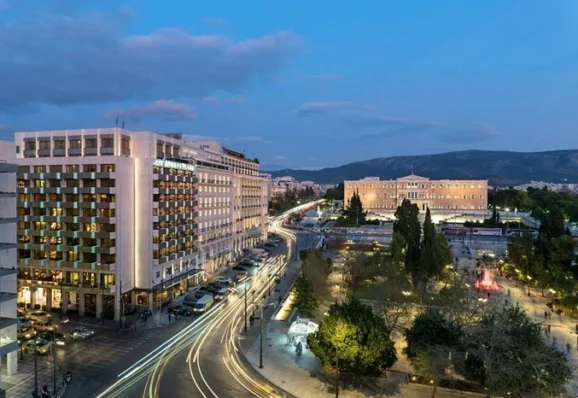
Photos: Trip.com
RECENT ARTICLES
-
 Wingsuit skydivers blast through world’s tallest hotel at 124mph in Dubai stunt
Wingsuit skydivers blast through world’s tallest hotel at 124mph in Dubai stunt -
 Royal Ascot leads the field in sport and style
Royal Ascot leads the field in sport and style -
 Slovenia launches digital nomad visa for non-EU remote workers
Slovenia launches digital nomad visa for non-EU remote workers -
 Charting confidence at sea with the St. Kitts & Nevis Ship Registry
Charting confidence at sea with the St. Kitts & Nevis Ship Registry -
 Luxury travel market set to more than double by 2035 as older, wealthier travellers drive demand
Luxury travel market set to more than double by 2035 as older, wealthier travellers drive demand -
 Countdown to Davos 2026 as Switzerland gears up for the most heated talks in years
Countdown to Davos 2026 as Switzerland gears up for the most heated talks in years -
 Prague positions itself as Central Europe’s rising MICE powerhouse
Prague positions itself as Central Europe’s rising MICE powerhouse -
 Bleisure boom turning Gen Z work travel into ‘life upgrade’
Bleisure boom turning Gen Z work travel into ‘life upgrade’ -
 Europe’s property market shows fragile recovery as EXPO REAL survey highlights housing demand and policy strain
Europe’s property market shows fragile recovery as EXPO REAL survey highlights housing demand and policy strain -
 Inside London’s £1bn super-hotel with £20k penthouses, private butlers and a gilded eagle
Inside London’s £1bn super-hotel with £20k penthouses, private butlers and a gilded eagle -
 The five superyacht shows that matter most
The five superyacht shows that matter most -
 A world in gold: Andersen Genève launches the Communication 45
A world in gold: Andersen Genève launches the Communication 45 -
 Uber plots Channel Tunnel disruption with app-bookable high-speed trains
Uber plots Channel Tunnel disruption with app-bookable high-speed trains -
 Game, set...wax. Billie Jean King statue unveiled in New York
Game, set...wax. Billie Jean King statue unveiled in New York -
 How a tiny Black Forest village became a global watchmaking powerhouse
How a tiny Black Forest village became a global watchmaking powerhouse -
 Memories of Tehran, a city of contrasts
Memories of Tehran, a city of contrasts -
 Addiction rehab and recovery at Hope Thailand
Addiction rehab and recovery at Hope Thailand -
 Capital gains: inside Kinshasa’s flagship five-star hotel
Capital gains: inside Kinshasa’s flagship five-star hotel -
 This under-the-radar spot is Europe’s best late summer escape
This under-the-radar spot is Europe’s best late summer escape -
 Why Madeira is Europe’s ultimate island retreat
Why Madeira is Europe’s ultimate island retreat -
 Three resorts, three generations, and one extraordinary family legacy
Three resorts, three generations, and one extraordinary family legacy -
 Wellness with a view at Cape of Senses
Wellness with a view at Cape of Senses -
 Travel across five European countries by train in under one day
Travel across five European countries by train in under one day -
 Spring into Ahrntal – the best-kept secret of the Italian Alps
Spring into Ahrntal – the best-kept secret of the Italian Alps -
 Stanley Johnson discovers the Mediterranean’s best-kept secret
Stanley Johnson discovers the Mediterranean’s best-kept secret



